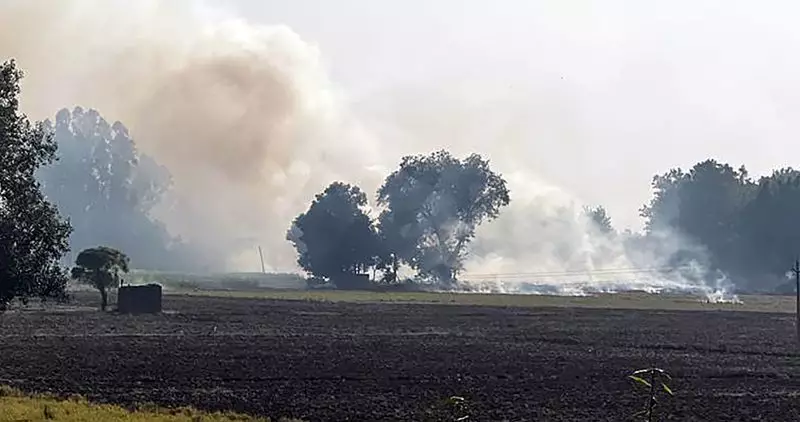
In a significant environmental achievement, Amritsar district has recorded a dramatic 56% reduction in farm fires during the current harvesting season compared to last year. This remarkable decline represents a major victory in the ongoing battle against stubble burning and air pollution in northern India.
Official Data Reveals Substantial Progress
According to the latest reports from agricultural authorities, Amritsar witnessed only 2,096 farm fire incidents between September 15 and November 14 this year. This stands in stark contrast to the 4,783 incidents recorded during the same period in the previous year, demonstrating substantial improvement in managing crop residue.
The data reveals a consistent downward trend throughout the monitoring period. From September 15 to October 14, the district reported 1,095 farm fires, significantly lower than the 2,642 incidents during the corresponding timeframe last year. The positive trend continued into the subsequent month, with 1,001 incidents between October 15 and November 14, compared to 2,141 during the same period in 2022.
Government Initiatives Drive Change
This impressive reduction didn't happen by accident. Multiple government interventions and farmer awareness programs have contributed to this environmental success story. District authorities implemented a multi-pronged strategy that included providing farmers with 9,900 farm machinery implements for proper crop residue management.
The administration established a comprehensive monitoring system with 25 teams specifically dedicated to preventing stubble burning across the district. These teams worked tirelessly to educate farmers about alternative methods and enforce regulations against the practice that has long contributed to northern India's severe air pollution problems.
Amritsar Deputy Commissioner Ghanshyam Thori confirmed the positive developments, stating that the consistent efforts have yielded tangible results. The administration's proactive approach included both support for farmers and strict monitoring to ensure compliance with environmental regulations.
Broader Impact on Regional Air Quality
The reduction in farm fires in Amritsar contributes to improved air quality across northern India, particularly in the National Capital Region. Stubble burning has been identified as a major contributor to the severe air pollution that plagues the region every winter, and Amritsar's progress sets a positive precedent for other agricultural districts.
Farmers in the region have increasingly adopted alternative methods for managing paddy straw, including using specialized machinery that allows them to clear fields without burning. The availability of government-subsidized equipment has played a crucial role in making these alternatives accessible and economically viable for agricultural communities.
While the 56% reduction marks significant progress, authorities emphasize that continued efforts are necessary to completely eliminate the practice. The success in Amritsar demonstrates that with proper support and enforcement, substantial environmental improvements are achievable even in traditionally challenging agricultural regions.





